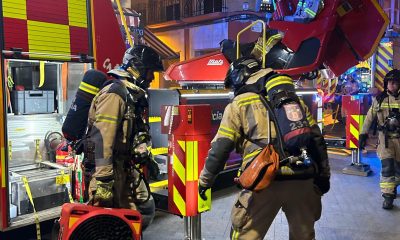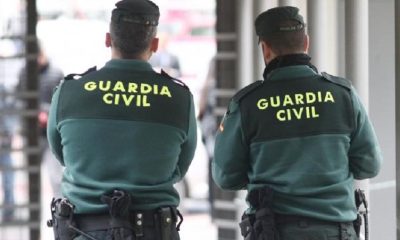News
What is included in the emergency pack that Europe announced?
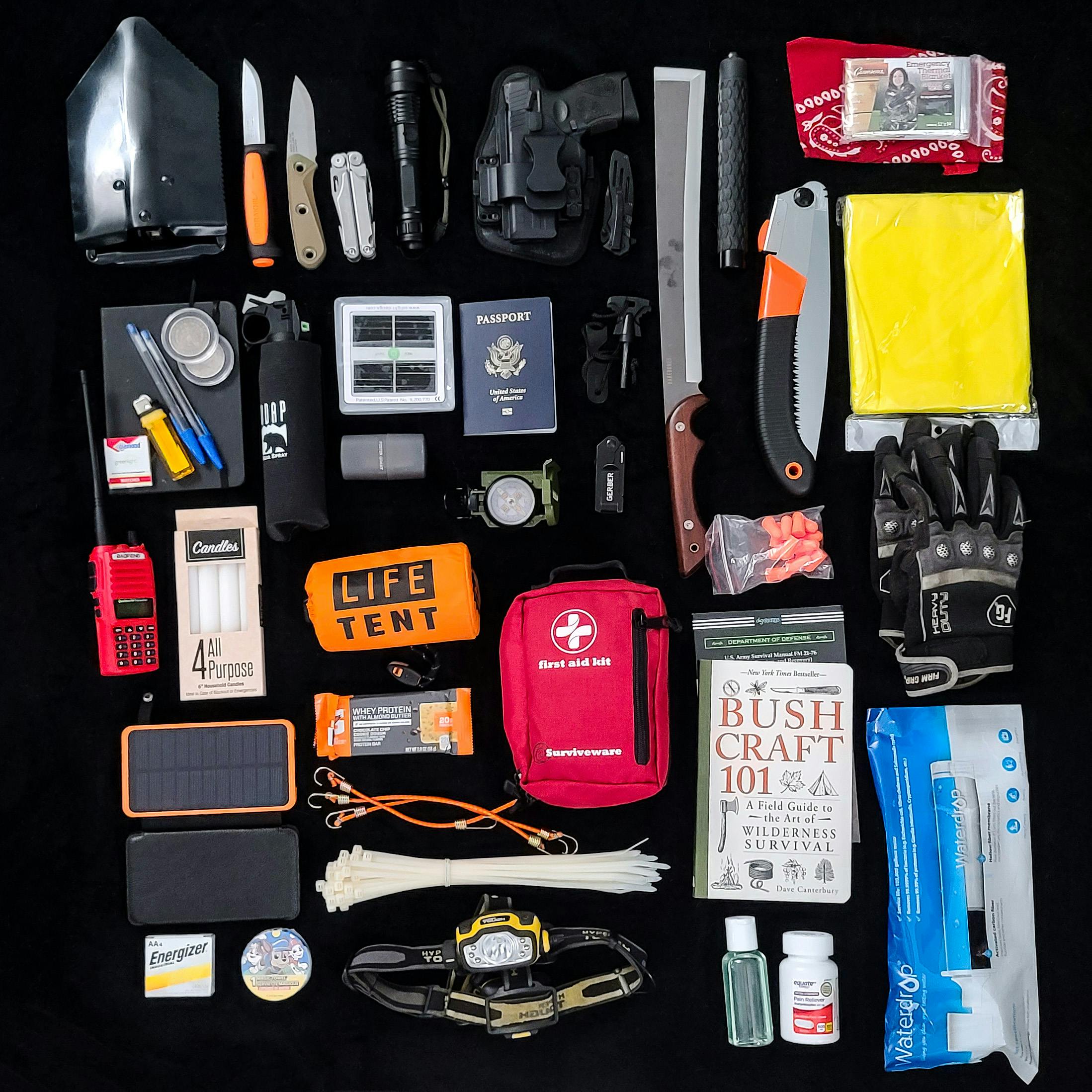
The European Union is on alert. In a scenario of “changing threats,” the European body has advised member states of the necessity for individuals to prepare for potential disasters, whether climatic emergencies or military conflicts. In this regard, Brussels has requested European residents to construct an emergency pack that will allow them to survive for at least 72 hours in the case of a serious disaster.
In response to this request, several countries, such as France, have already taken action and announced the distribution of a “Survival Manual .” Other European nations like Sweden and Finland have taken the lead in this movement. If approved by the government, the handbook could be distributed before the summer and will include helpful tips on how to handle emergencies, including how to keep a list of emergency contacts, identify official radio channels, and take precautions in case of a nuclear accident. It is also advised that citizens keep an emergency kit on hand.
What is included in the emergency pack that France announced?
Six litres of water in bottles
A dozen food cans
A radio and batteries are needed to get official information.
A sanitary kit
Money Winter attire
Batteries
Play board games to keep yourself occupied while you wait a long time.
For the time being, residents can refer to the emergency kits that Civil Protection has recommended for circumstances like evacuations, natural catastrophes, and power outages. Every home should have a basic emergency kit, which should include the following items, per the General Directorate of Civil Protection and Emergencies:
Non-perishable food and water (for at least three days).
Flashlight and spare batteries or a dynamo flashlight.
Portable battery-powered or hand-cranked radio for receiving official information.
First aid kit including basic drugs and those particular to family members.
Important personal documents in a waterproof bag (ID, passports, insurance policies, etc.).
Cash and bank cards.
Thermal blankets and warm clothes.
In the event of a trap, use the whistle to summon assistance.
personal hygiene items and dust masks.
External battery or portable mobile charger.
Furthermore, additional particular items might be required based on the nature of the emergency. Civil Protection advises having an emergency backpack with 24- to 48-hour supplies in case of evacuation.
These announcements are meant to promote resilience and make sure that the populace is prepared to respond to emergency situations like natural disasters, power outages, or even international conflicts, according to nations that are already spreading awareness about the need for these emergency kits.
Discover more from Costa Blanca Daily
Subscribe to get the latest posts sent to your email.
News
Pope Francis has died, the Vatican says

The Vatican has announced that Pope Francis has passed away at the age of 88.
In 2013, his predecessor, Benedict XVI, resigned, and the pontiff, who was Bishop of Rome and chief of the Catholic Church, was elected pope.
His passing follows a prolonged hospitalisation in February and March, as well as a series of health issues in recent years.
The Vatican released a statement in which Cardinal Kevin Farrell announced the news. He stated, “My dear brothers and sisters, it is with profound sorrow that I must inform you of the passing of our Holy Father Francis.”
The Bishop of Rome, Francis, returned to the Father’s residence at 7:35 a.m. this morning. His entire existence was devoted to the service of the Lord and His Church.
“He instructed us to embody the principles of the Gospel with fidelity, courage, and universal love, with a particular emphasis on the most impoverished and marginalised individuals.”
“We offer Pope Francis’ soul to the infinite merciful love of the One and Triune God with immense gratitude for his example as a genuine disciple of the Lord Jesus.”
The Vatican announced that Francis passed away on Monday morning, a mere day after he addressed the throngs in St. Peter’s Square on Easter Sunday.
The conclave, which is the process of selecting a new pope, typically occurs within 15 to 20 days of the pontiff’s demise.
Recent hospitalisations
His papacy has been characterised by numerous hospital visits and health concerns in recent years.
The Pope was admitted to the infirmary on February 14th for treatment of bronchitis.
The Vatican announced in the days that followed that he had been diagnosed with bilateral pneumonia and had received blood transfusions as a result of low platelet levels in his blood, which are linked to anaemia.
The Vatican announced on February 22nd that the Pope was in a critical condition due to a “prolonged respiratory crisis” that necessitated a high flow of oxygen. The following day, the Vatican reported that Francis was exhibiting a “initial, mild” kidney failure.
In the days that followed, thousands of devout individuals convened in St. Peter’s Square to pray for his recovery, while others visited the Rome hospital where he was residing to present him with flowers and cards.
Due to his “complex,” he was hospitalised for the remainder of the month.
His voice was heard for the first time since his hospitalisation in an audio message dated March 6th, in which he expressed gratitude to his supporters and declared, “I am with you from here.”
A day after meeting with US Vice President JD Vance, he appeared at the Easter Sunday Service on Sunday to greet the audience.
On 23rd March, he concluded his 38-day hospital stay by making his first public appearance in five weeks on a balcony at Gemelli. He smiled and offered a thumbs up to the crowds that had gathered outside.
He returned to the Vatican, where he made a surprise stop at his favourite basilica on his way home. Subsequently, he commenced a two-month period of prescribed rest and recovery.
The doctors stated that Francis would have access to supplemental oxygen and 24-hour medical care as needed. They also mentioned that, despite the successful treatment of the pneumonia infection, the pontiff would continue to take oral medication for an extended period to address the fungal infection in his lungs and to continue his respiratory and physical physiotherapy.
‘Pope of the People’
Francis, who was born in 1936, was the first pontiff from South America. He was called the “People’s Pope” for his support of the poor and those fleeing war and famine.
In 2016, he performed a “gesture of humility and service” by washing the feet of refugees from various religious backgrounds at an asylum centre located outside of Rome.
He also expressed his opinions on a diverse array of topics, including the role of women in the Catholic Church, wealth inequality, and climate change.
His acceptance of the LGBTQ community was unprecedented, beginning with an unexpected comment to reporters on a flight back from Brazil regarding homosexual clergy.
He stated, “Who am I to judge an individual who is gay and possesses good intentions and seeks God?”
Nevertheless, in April 2024, he signed the text “Dignitas Infinita” (Infinite Dignity), which appeared to reiterate the Vatican’s fervent opposition to euthanasia, abortion, surrogacy, and gender reassignment.
In the same year, his own liberal credentials were called into doubt following allegations that he had used a homophobic slur in private.
Pope’s heath in recent years
Francis had a portion of one lung excised when he was a young man in his native Argentina.
Francis’ public speaking was restricted during his final years due to his chronic bronchitis and illness, which necessitated the use of a wheelchair or cane to navigate.
In 2021, Francis underwent his first hospital stay as a pontiff for an operation to remove a portion of his colon.
He was admitted to the hospital in June 2023 for an operation on his intestine. The Vatican stated that he had been experiencing “recurrent, painful, and deteriorating” symptoms as a result of an abdominal hernia at the time.
He was compelled to miss significant events in the Roman Catholic calendar, such as the traditional Good Friday procession at Rome’s Colosseum last year, due to his recent health issues.
In 2022, he suggested that he may resign if his health continued to decline. This was after he was photographed using a wheelchair to address mobility issues caused by a flare-up of sciatica, a nerve condition that causes leg discomfort.
In 2013, his predecessor, the late Benedict XVI, became the first pope to resign in over 600 years, rather than serving for life. He passed away in 2022.
Jorge Mario Bergoglio, the Pope’s birth name, was previously used as a bishop in Buenos Aires.
Francis’ passing will be mourned by an estimated 1.4 billion Catholics worldwide.
Discover more from Costa Blanca Daily
Subscribe to get the latest posts sent to your email.
Costa Blanca
Firefighters extinguish fire in a restaurant in the centre of Murcia
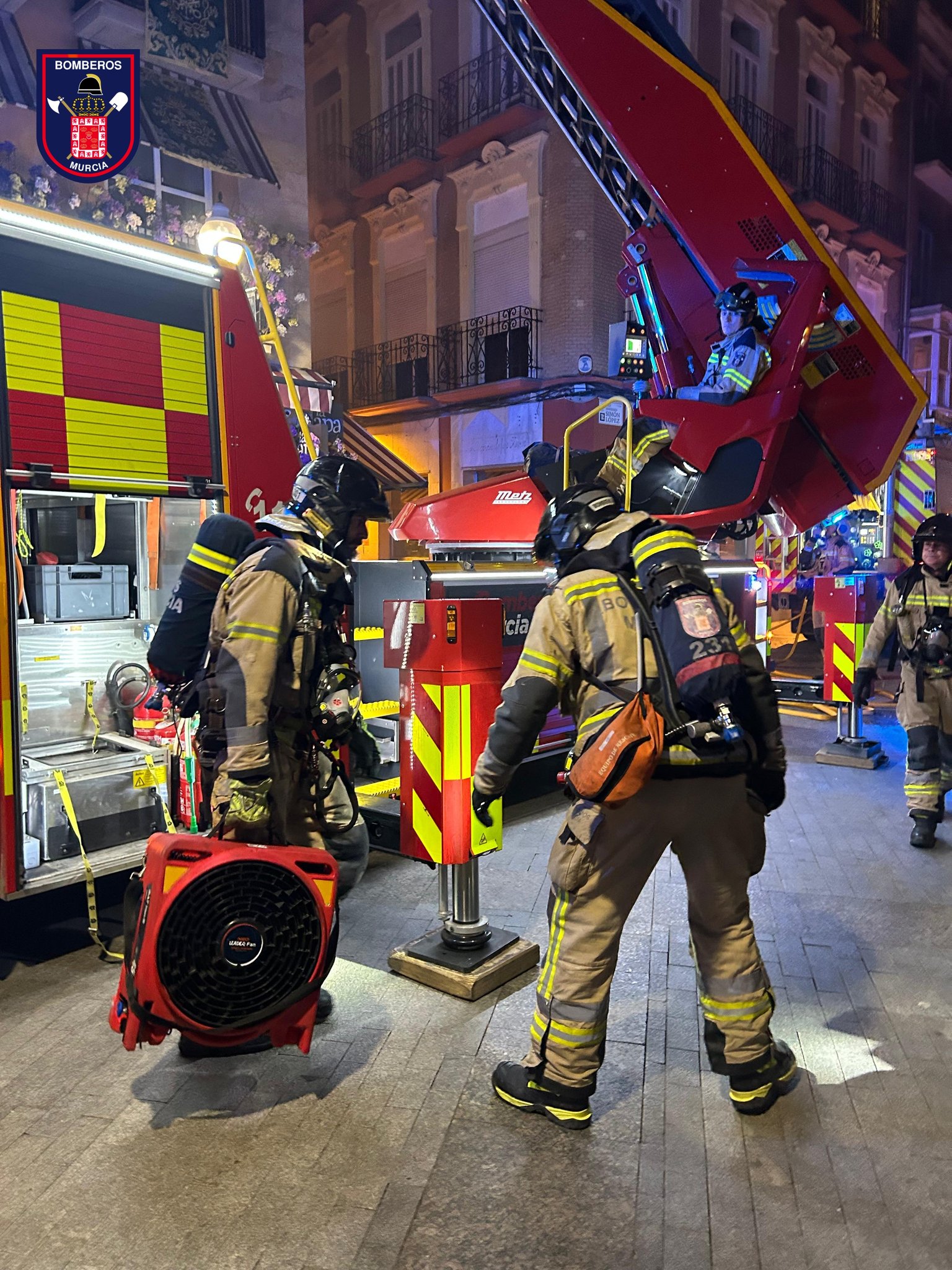
A fire that erupted in the early hours of Friday April 18th was extinguished by the firefighters of Murcia. Sources from the Firefighting Service say that the incident happened at a restaurant located in the heart of Murcia, at Plaza de las Flores.
In the early morning, the kitchen on the first floor of the establishment was the site of a fire that began at approximately 1:00 a.m. and did not result in any injuries.
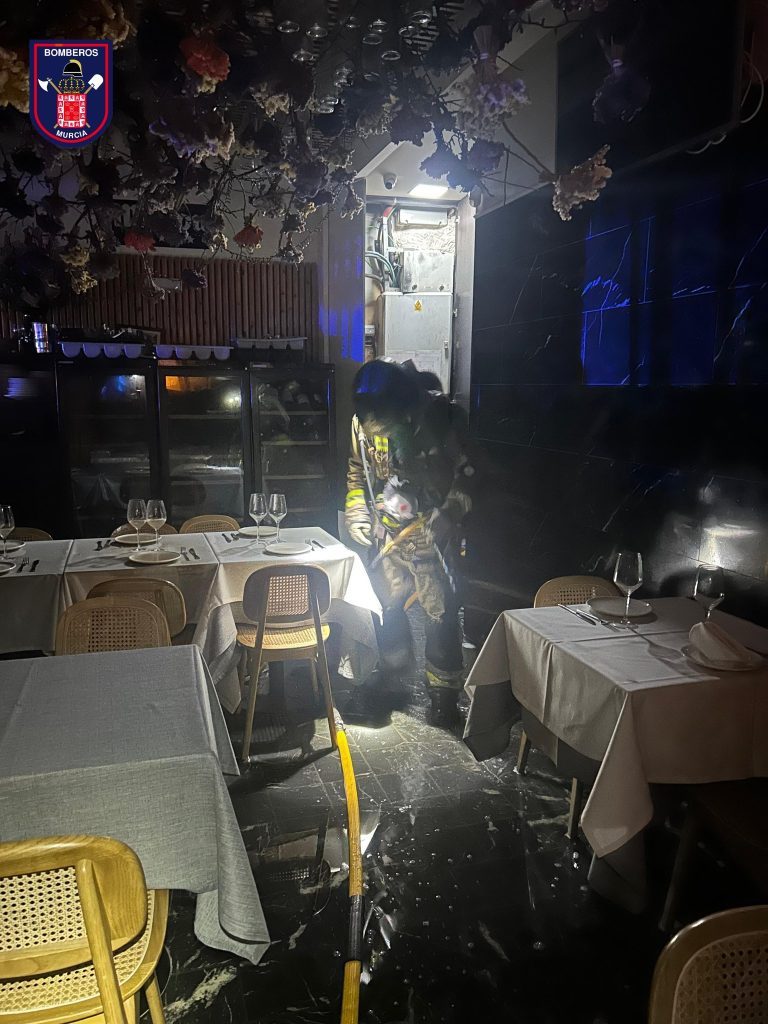
Thirteen rescuers and three fire engines were dispatched to the location. The personnel successfully extinguished the fire and returned to their base one hour later.
The square was cordoned off by the Murcia Local Police to mitigate potential hazards, according to the same sources.
Discover more from Costa Blanca Daily
Subscribe to get the latest posts sent to your email.
Costa Blanca
Two years in prison for smashing a glass in a young man’s face
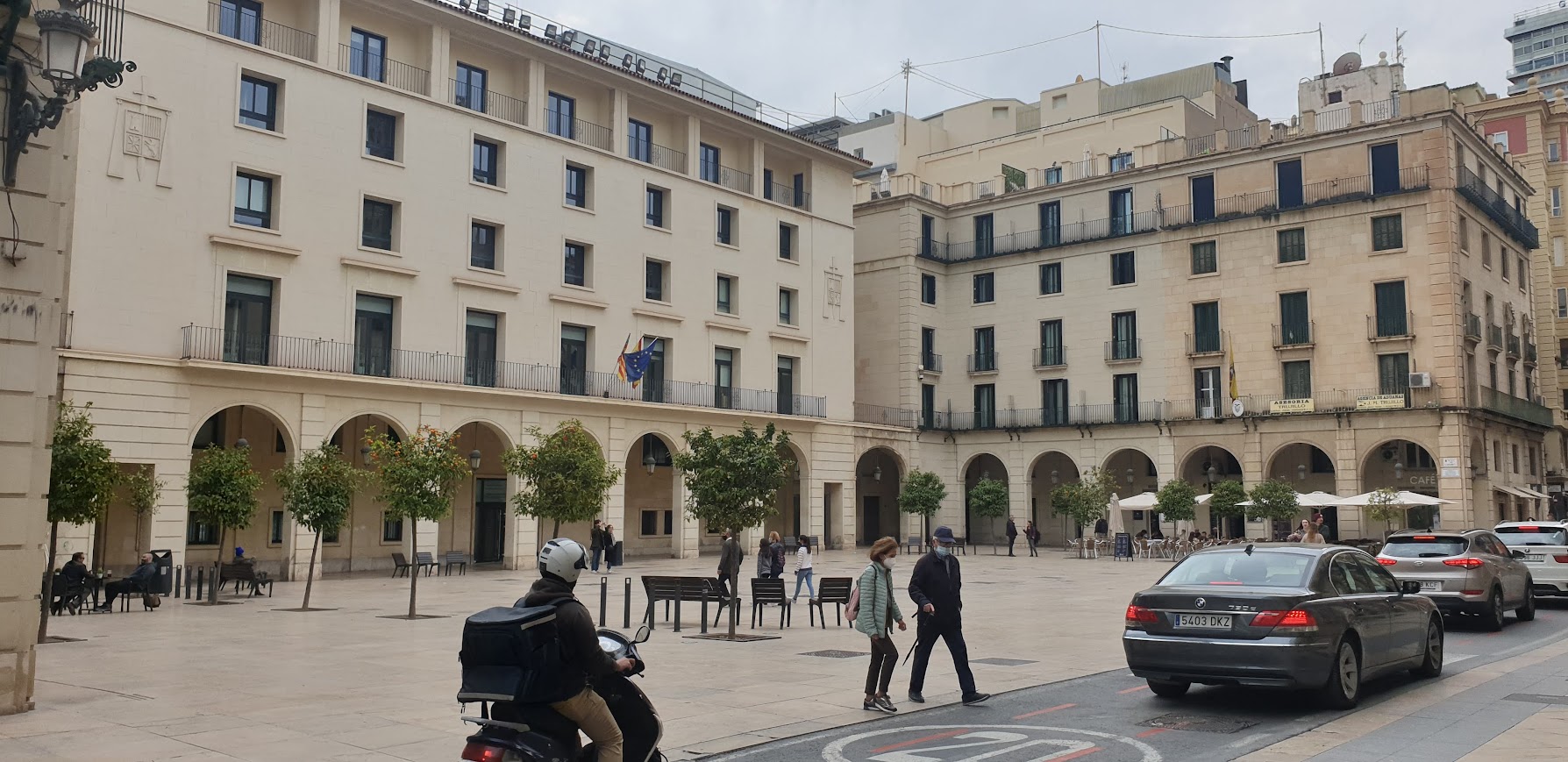
The Alicante Court has sentenced a 33-year-old man to two years in prison for assaulting another man and causing facial injuries by breaking a glass during a dispute at a nightclub in Aspe.
The defendant, who was 27 years old at the time, arrived at the establishment with three other unidentified individuals at approximately 5:10 a.m. on February 17th, 2019. The altercation ensued within the establishment.
The victim was involved in an incident with the four for reasons that remain unexplained. The defendant struck him in the face with a glass, resulting in a fracture that needed medical attention, and the four individuals who were present at the time began punching and shoving him.
The victim, who was 22 years old at the time of the incident, required 63 days to recuperate from the injuries sustained in the attack, according to the sentence issued by a court in the Tenth Section.
At the commencement of the April 14th hearing, the defendant acknowledged the assault after reaching a resolution with respect to the allegations. Consequently, the sentence determines that he is guilty of the offence of bodily injury with deformity. Consequently, he is sentenced to two years in prison, with the sentence suspended.
Additionally, the court ruling mandates that the victim be prohibited from approaching within 300 metres for a period of three years and that he be awarded €9,000 in compensation, with the obligation to pay the sum in monthly instalments of €500.
Discover more from Costa Blanca Daily
Subscribe to get the latest posts sent to your email.
-
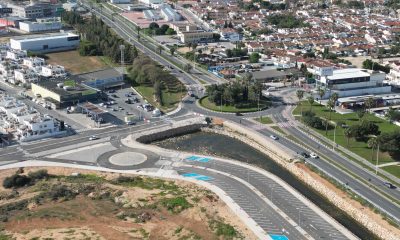
 Costa Blanca1 day ago
Costa Blanca1 day agoTorrevieja fails to comply with its commitment to open new road at La Hoya for Easter
-

 Costa Blanca6 days ago
Costa Blanca6 days agoTorrevieja records a 2.8 magnitude earthquake
-
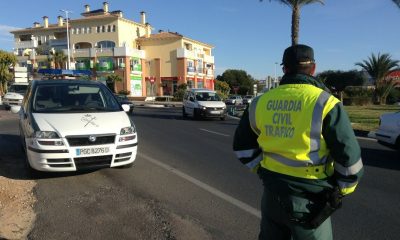
 Costa Blanca2 weeks ago
Costa Blanca2 weeks agoThis week the DGT will issue over 64,000 speeding tickets
-

 Costa Blanca2 weeks ago
Costa Blanca2 weeks agoSix arrested for the use of AI to defraud over 19 million euros
-

 Costa Blanca1 week ago
Costa Blanca1 week agoSpanish family killed in helicopter crash in New York
-

 Costa Blanca2 weeks ago
Costa Blanca2 weeks agoBeware if you receive an orange envelope in your postbox
-

 Costa Blanca2 weeks ago
Costa Blanca2 weeks agoPolice are investigating a shooting in Alicante
-
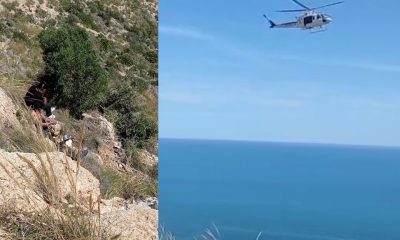
 Costa Blanca2 weeks ago
Costa Blanca2 weeks agoHelicopter rescue operation near Santa Pola lighthouse

